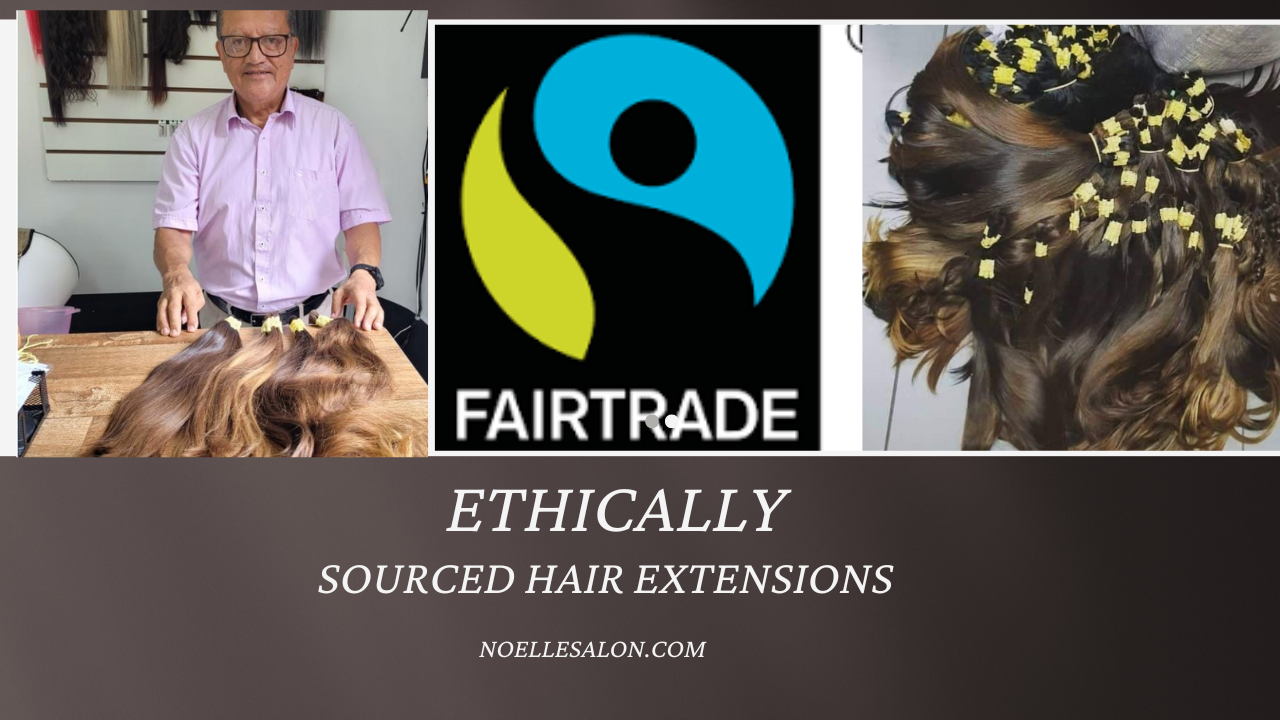Ethically Sourced Hair Extensions: Why It Matters
What does it mean for hair extensions to be ethically sourced?
Ethically sourced hair extensions mean that the hair used to create the extensions comes from sources that prioritize fair labor practices, human rights, and sustainability. It ensures that the hair is obtained with the consent of the donor, and without exploitation or harm to individuals or the environment.
In recent years, the hair extension industry has gained significant popularity, with consumers around the world turning to extensions to enhance their natural hair or experiment with new styles. However, behind the scenes of this booming industry, a darker reality exists. Mislabeling, unethical practices, and a lack of transparency have plagued the hair extension market, raising concerns about the quality of the products and the well-being of those involved in their production.
The Reality of Mislabeling in the Hair Extension Industry
Despite the rise in demand for human hair extensions, the market is flooded with a vast array of synthetic hair extensions mislabeled as human hair. This misrepresentation not only deceives consumers but also undermines the ethical sourcing of hair extensions. Consumers may unknowingly purchase low-quality synthetic hair extensions instead of the high-quality human hair they expect, resulting in disappointment and frustration.
Since there is no governing body overseeing hair imported from other countries, we rely on our relationship and honesty from the manufacturers. However, this trust has been eroded by unethical practices in the industry.
Human Rights Concerns in Hair Extension Production
Another pressing issue surrounding hair extensions is the violation of human rights in their production. In some cases, hair is sourced from individuals who are coerced or forced into selling their hair. Exploitation and unfair compensation are rampant, with donors often receiving inadequate payment for their hair. This not only perpetuates a cycle of poverty but also raises ethical questions about the sustainability and fairness of the industry.
The Impact of Mislabeling on Consumers
The misrepresentation of hair extensions not only harms consumers but also taints the industry's reputation. Ethical concerns arise from reports of women being exploited for their hair, often receiving inadequate compensation for their contributions. This lack of fair compensation is not only unjust, but it also perpetuates a cycle of exploitation and unethical sourcing practices.
Ethical Concerns Arising from Misrepresentation
Ethical sourcing of hair extensions plays a pivotal role in addressing the industry's misrepresentation. The coloring process, often involving the use of harmful chemicals, is another ethical concern associated with hair extensions. Companies that prioritize ethical sourcing can help alleviate these concerns by providing transparency throughout their supply chain, from sourcing human hair to processing and distribution.
I work with a factory in India, and they send pictures of the hair that is being sourced from temples in their area, the hair tonsuring ceremony. This ceremony is a sacred practice in which individuals voluntarily shave their heads as a symbol of devotion or gratitude. These temple authorities then sell the collected hair to reputable manufacturers who prioritize ethical sourcing.
By working closely with such manufacturers, we ensure that the hair extensions we offer are truly ethically sourced. The pictures sent by our factory in India provide us with transparency and assurance that the hair being used comes from genuine and voluntary donations. This way, we can confidently guarantee that our customers receive high-quality human hair extensions without compromising their values.
Understanding Ethically Sourced Extensions
To truly address the ethical concerns in the hair extension industry, it is crucial to understand what it means for extensions to be ethically sourced. Ethically sourced extensions involve human hair obtained through fair and transparent means, ensuring the well-being of those involved in the process. It goes beyond simply sourcing high-quality hair; it includes fair compensation, transparency, and ethical practices throughout the supply chain.
Defining 'Ethically Sourced'
Defining what it means for hair extensions to be ethically sourced is a complex task, considering the multifaceted nature of the hair industry. Ethically sourced extensions prioritize fair compensation for those sourcing human hair, ensuring transparency at every step of the process, from hair collection to weft creation. They may involve virgin hair, which is hair that has never been chemically treated, or remy hair, which is hair collected and aligned to maintain the natural cuticle direction. Both virgin hair and remy hair minimize tangling and prolong the lifespan of extensions, contributing to their quality and ethical sourcing.

The Importance of Transparency in Sourcing
Transparency in sourcing hair extensions is a fundamental aspect of ethical practices within the industry. It ensures that the hair used for extensions comes from ethical origins, such as Europe, India, or China, where hair is sourced from willing donors or purchased through fair trade practices. Transparency also includes providing detailed information on hair strands, thickness, and color match, assisting consumers in making informed choices about the extensions they purchase.
Creating a relationship with our supplier in India allows for open communication about the source of the hair, the color consistency, and quality. Factories in other countries can not comply with this standard, therefore India is my choice for quality virgin hair extensions.

The Journey of Ethically Sourced Hair Extensions
Understanding the journey of ethically sourced hair extensions is crucial in promoting transparency and ethical practices within the industry. From sourcing to the consumer, various steps are taken to ensure ethical sourcing, fair compensation, and quality throughout the extension process.
From Source to Consumer: The Ethical Path
The ethical path of hair extensions encompasses sourcing, processing, and consumer distribution. Ethical sourcing involves fair trade practices, ensuring that hair is obtained from donors who are fairly compensated. Countries like India, known for their rich hair culture, play a significant role in providing hair for extensions, including high-quality remy human hair. From sourcing to shipping, fair trade practices and ethical sourcing become integral elements of the extension process, ensuring transparency and ethical compensation.
Ensuring Quality and Fair Trade in the Process
- Fair trade practices are vital in ensuring ethical sourcing and fair compensation for hair sourcing.
- Quality hair extensions require ethical sourcing, which commonly involves remy human hair.
- The coloring process of hair extensions should prioritize ethical practices and transparency.
- Ethical sourcing ensures that the hair used for extensions is acquired through fair and transparent means.
- Remy hair, which maintains the natural cuticle direction, contributes to quality and ethical sourcing.
- iSO Certification
Distinguishing Ethically Sourced Extensions
As a consumer, distinguishing ethically sourced extensions from those that do not require awareness and knowledge about the industry's ethical standards and practices. By recognizing the marks of ethical sourcing, consumers can make informed decisions, supporting brands that prioritize transparency, fair compensation, and ethical practices.
Wording with larger factories in India ensures that the hair being sent to us is not bypassing the temples, and is coming from those who want to donate their hair.
Identifying Marks of Ethically Sourced Hair Extensions
When seeking ethically sourced hair extensions, there are several key factors to consider:
- Look for certifications, such as those indicating the hair is virgin hair or remy hair, which are often associated with ethical sourcing standards.
- Transparency in sourcing, coloring process, and fair compensation are essential markers of ethical sourcing.
- Brands offering natural hair extensions should provide reports of the women involved, ensuring transparency and accountability in their sourcing practices.
- Transparency throughout every stage of sourcing, coloring, and shipping hair extensions is crucial, demonstrating a commitment to ethical sourcing and fair compensation.
- ISO certification is another important factor to consider when looking for ethically sourced hair extensions. ISO (International Organization for Standardization) certification ensures that a company follows specific procedures and standards related to quality, sustainability, and ethical practices. By choosing brands with ISO certification, consumers can have greater confidence in the ethical sourcing of their hair extensions.

Verifying the Claims of Brands
When assessing the claims of hair extension brands, it's crucial to verify the sourcing, whether it's virgin hair, human hair, or synthetic hair. Ethical sourcing not only ensures transparency and quality but also ethical compensation for the source. Brands making these claims should provide detailed information on sourcing, strands, and thickness. It's important to look for brands that source hair extensions from ethical origins such as Europe, India, and China, as this signifies a commitment to ethical practices and transparency in the sourcing process.

The Role of Consumers in Promoting Ethical Practices
As consumers, we have the power to drive change within the hair extension industry by prioritizing ethical sourcing and supporting transparency. Consumer awareness plays a vital role in promoting ethical practices and pushing for industry-wide change.
Consumer Awareness and Its Impact
Consumers who are informed about ethical sourcing practices in the hair extension industry can make conscious decisions, thereby encouraging ethical sourcing and transparency. The choices consumers make in purchasing hair extensions directly impact the demand and supply of ethical products, effective in supporting ethical sourcing efforts.
How to Support Ethically Sourced Brands?
- Support brands like Veila Hair Extensions that prioritize ethical sourcing, transparency, and fair compensation for hair sourcing.
- Encourage ethical practices by supporting brands that demonstrate transparency in sourcing and shipping hair extensions.
- Choose hair extension brands that provide detailed information about sourcing, coloring processes, and fair compensation.
- Support ethical sourcing and transparency by selecting hair extension brands that prioritize the well-being of those involved, including women sourcing the hair.
- By supporting hair extension brands committed to ethical practices, consumers can drive positive change in the industry and promote transparency and fair compensation.

The Future of the Hair Extension Industry
As the hair extension industry evolves, the future holds promise for more ethical practices, transparency, and quality hair extensions. The growing demand for ethical sourcing and transparency creates opportunities for positive change within the industry
Trends Towards More Ethical Practices
The industry is witnessing a notable shift towards ethical practices, driven by consumer demand for transparency and quality. Brands are increasingly prioritizing ethical sourcing, fair compensation, and transparency, aligning themselves with the growing ethical market.
The Potential for Change: Challenges and Opportunities
Embracing ethical sourcing in the hair extension industry presents both challenges and opportunities. Overcoming challenges associated with sourcing, transparency, and fair compensation creates an environment where ethical practices thrive. As the industry continues to evolve, there are opportunities for brands and consumers alike to contribute to positive change, furthering ethical sourcing and transparency efforts.
Only we can make a difference; since many of our goods are manufactured in other countries, requiring transparency in manufacturing is paramount, including labor laws, and quality.
Conclusion
In conclusion, transparency and ethical practices are crucial in the hair extension industry. Consumers deserve to know the true source of their extensions and the conditions in which they were produced. Misrepresentation and mislabeling not only mislead consumers but also contribute to unethical practices. Ethically sourced extensions prioritize fair trade, sustainable sourcing, and responsible manufacturing processes.
As consumers, it is important to be aware of the marks of ethically sourced extensions and to verify the claims of brands. By supporting and promoting ethical practices, we can drive positive change in the industry. Through consumer awareness and demand, we can encourage brands to prioritize transparency and ethical sourcing.
The future of the hair extension industry lies in the adoption of more ethical practices. Trends are shifting towards sustainability and responsible sourcing, presenting both challenges and opportunities for change. ISO certification serves as a valuable tool in ensuring ethical standards are met.
Let us join hands in advocating for transparency and ethical sourcing in the hair extension industry, making informed choices that align with our values and contribute to a better future.










